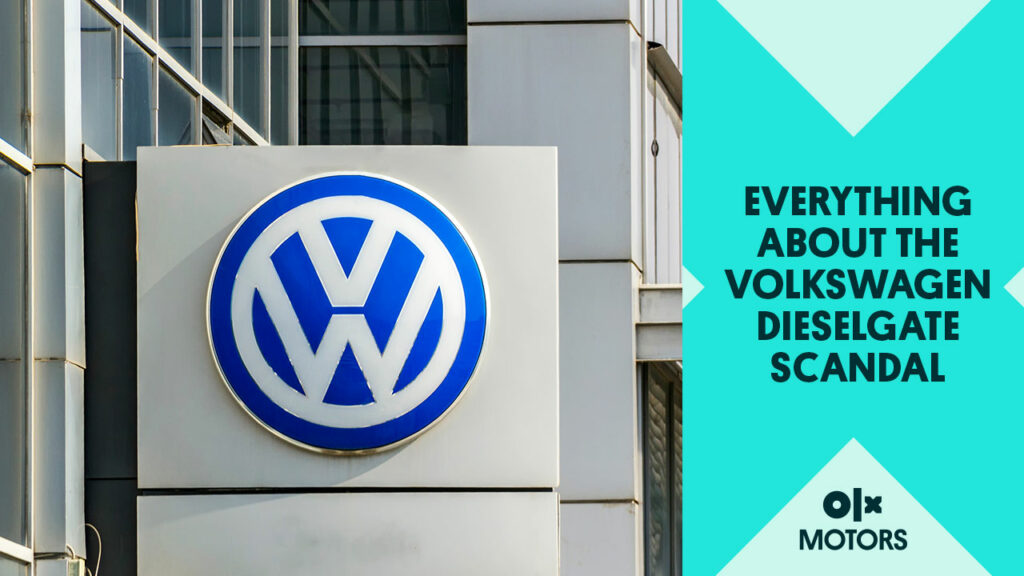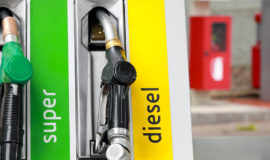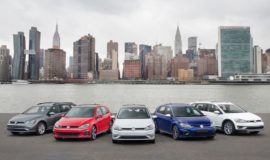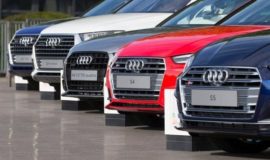
Volkswagen took the world by storm when it came forward with the truth about its “clean-diesel” engines back in 2015. Are you pondering what happened? There is no simple answer for that. But you may very well be able to find an answer in its simplest form as possible by going through the words below!
Background
In 2004, EPA (Environmental Protection Agency) of the United States tightened its grip on standards that regulate diesel vehicles. Previously, diesel engines were considered to be green alternatives to the regular petrol ones. But now this is not true anymore as diesel is much more harmful than petrol by today’s standards (if not used efficiently).
Diesel, while already having a strong Carbon Dioxide (Co2) mixture, had lower carbon footprint emissions in the 1990s than petrol/gasoline engines. In due time, innovation led to efficiency in petrol engines in terms of Co2 emissions. Therefore, that meant Diesel engines were no longer considered to be efficient in creating lower carbon emissions than comparative petrol engines.
Additionally, studies suggest diesel engines are also responsible for tailpipe pollution with pollutants such as nitrogen oxide (Nox) and other hazardous particulates. So, having cars that are superseding diesel emissions cutoffs, is hazardous to the health of the general public.
Europe’s Outlook On Diesel Engines
Diesel engines were subsidized by the European countries individually to promote diesel as a green (see above) alternative fuel to petrol. Nowadays, Diesel vehicles are used by 50% of the population of the European Union and the United Kingdom. This represents that diesel is one of the most used fossil fuels in the aforementioned region.
America’s Outlook On Diesel Engines
Diesel is vehemently stigmatized in the United States of America. A couple of reasons factor into its stigmatization. First, it should be noted General Motors’ mishap of its Oldsmobile Diesel series in the 1970s and 1980s led to breakdowns, crankshaft problems, and black clouds of smoke. Furthermore, Diesel is considered to have a “dirty” or “greasy” image even when a car is running clean diesel engines. Only 3 percent of the cars in the United States of America are diesel powered!
What Is Dieselgate?: The Origins
Numerous factors come into play when it is asked why it took place. Nitrogen oxide, hazardous particulate matter, and carbon dioxide are diesel tailpipes’ dangerous and harmful after-effects that cause premature deaths. Cheating to show these pollutants lower than the federal limit is not only unethical but inherently illegal too.
This is exactly what Volkswagen decided to do after the EPA made the federal limit for diesel emissions more stringent in 2004. In 2007, when the new standards were in full effect (the Phase-in period was about to be over), Volkswagen had suspended the current diesel lines of that time. They had to do something and that is when their unlawful innovation came into existence!
The Real Crime
Volkswagen introduced ‘Clean-Diesel’ TDI (Turbocharged Direct Injection) in 2009, which was sort of the “miracle” technology the conglomerate needed. Volkswagen promoted that TDI was able to expend less fuel and produce lower emissions while providing extended power. Similar engines were also produced for Audi and Porsche. In reality, these engines had “defeat devices” installed that lowered emissions when in the testing phase but superseded the federal limit when on an actual road.
Previously, everything was done in testing facilities then real roads. Therefore, Volkswagen was provided with a hack to their own cars, so they could cheat in testing phases of emission checking protocols around the world including the USA. The device could detect if the car was being tested, so it could lower its emissions accordingly
With TDI also released in the US market, sales soared and these ‘clean diesel’ engines won several green awards. During this time Bosch had warned Volkswagen about the usage of cheat devices in the real world. But Volkswagen let it go like this until the EPA came running after them.
How Did The Rabbit Come Out Of The Hat?
Around 2014, a group of scientists from West Virginia University (in conjunction with the International Council of Clean Transportation – ICCT) in the US initiated testing of three diesel cars, namely, Volkswagen Passat, Volkswagen Jetta, and BMW X5. Continuous and exhaustive testing of these aforementioned cars showed discrepancies in the real-world emissions of the Volkswagen models involved in the testing.
This came out because of the portable emission testing system the team was equipped with, which made on-road testing possible. These Volkswagen cars exceeded the US and European emission limit by 40 times multiplied margin. Investigations started promptly by the EPA with related authorities and it began to pursue Volkswagen into coming clean. In September 2015, EPA made this development public knowledge and Volkswagen admitted to the wrongdoing soon after.
Why Did They Do It?
Numerous factors are involved in this scandal and many of these are shrouded in mystery.
EPA’s watertight rules and regulations regarding the federal limit pushed the manufacturer to force the development of new engines that would have stayed true to emissions standards. Instead of coming up with a whole new engine and pushed on by the performance-oriented culture of Volkswagen, engine engineers, architects and coders came with software that would go on to cheat future emissions tests. Optimal time was not given to the engine creators to make an engine that was capable of ‘clean diesel’ expending. This started around 2009 and nobody thought of stopping this negligence or opting for a better way.
The major source of this cannot be pinpointed as Volkswagen’s senior management vehemently denied the decision to install cheat software. Nor did the low-ranking officers of the company admit to any wrongdoing. Car software is not made of a simple line of code but has complicated code throughout the software, which can be replicated in millions of cars. Anyone would have created the piece of code, which veils the main culprit. But it is highly unlikely that the key people of Volkswagen could not have known about this kind of development. Perhaps they did know but are playing dumb and dumber when it comes to Dieselgate.
Aftermath, Backlash And Future
After the infamous Dieselgate/Emissions Scandal, there was a chain reaction in its outcome. The CEO of Volkswagen at that time, Martin Winterkorn resigned while affirming that he did not know how it happened. Stocks plunged and global sales of Volkswagen went down like broken shards of glass. 5 to 9 managers of Audi, Volkswagen, and Porsche were also arrested.
Volkswagen was ordered to recall all the cars that had TDI engines (or variations on them), including but not limited to Audis, Jettas, Passats, and Porsche Cayennes, which amounted to 8.5 million units. A buyback and replacement program was also initiated. Up until now, Volkswagen has paid up to $30 Billion in fines, buybacks, and lawsuits.
Countries all over the world, especially from Europe are giving second looks to their minuscule emissions standards. Diesel engines are further tainted, which affects the sales of the ones that are actually clean. A 2015 study addresses how 59 premature deaths were caused by cars with TDIs. Other manufacturers are also being looked upon for discrepancies in emissions.
Volkswagen has committed to producing fully electric cars. TDIs are indefinitely banned in the USA. The sales of electric cars are exponentially rising with the scandal factoring into it. Volkswagen is unanimously panned by industry experts at the time of the scandal and to this day.
OLX Pakistan is an online classifieds’ marketplace providing access to affordable products and services to a large population of this country. Choose from a wide range of products and services online.




Additionally, studies suggest diesel engines are also responsible for tailpipe pollution with pollutants such as nitrogen oxide (Nox) and other hazardous particulates. So, having cars that are superseding diesel emissions cutoffs, is hazardous to the health of the general public.